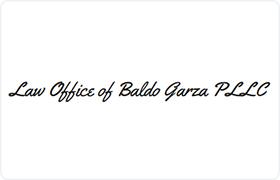 Highlands RICO Act Lawyers, Texas
Highlands RICO Act Lawyers, Texas
Sponsored Law Firm
-
 x
x

Click For More Info:
-
Law Office of Baldo Garza PLLC
11200 Westheimer Rd. Suite 710 Houston, TX 77042» view mapCriminal Defense Law Working With You Every Step
Baldo Garza PLLC has been working together for 15 years and has a proven track record of success. We use that experience to help you down a path to the results you need.
800-691-8350
Lawyers
1-1 of 1 matches



 Baldomero Garza III Houston, TX
Baldomero Garza III Houston, TX Practice AreasExpertise
Practice AreasExpertise